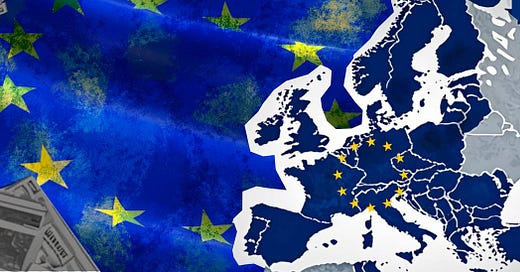Historically, populism has typically come from economic stagnation, downfall, or large military losses. Euroscepticism and European far-right populism diverge in that they have arrived as direct results of mass migration within the European Union. Furthermore, Europe’s united front towards immigration has caused dissent and radicalization for some member states, particularly as Western countries have predominantly held favorable positions towards mass immigration, whereas Eastern European countries like Poland, Hungary, and Slovakia lean toward policies of zero tolerance. On April 10th, 2024, the EU approved the New Pact on Migration and Asylum, which mandated the relocation of migrants across EU member states, leading to uproar from states with lower migrant populations, particularly Hungary and Poland, which refused to submit to this policy, as well as other countries such as Italy, Slovakia, and Czechia. Dissent over mass migration has led to the rise of far-right parties all around Europe and the weakening of EU control over “unruly” states such as Hungary, Slovakia, Poland, and, most probably, Romania in the very near future. Overarching policies on the sensitive subject of immigration that have been manufactured in Brussels inevitably cast a uniform approach to migration without carefully imputing the unique economic needs or social perspectives of specific countries. The political situation in Sweden and Austria stems from the inability to confront this reality, resulting in a far-right turn of the electorates and strengthening parties that even harbor pro-Russia sentiments and oppose further European integration efforts. Such far-right populist waves destabilize the integrity and undermine the authority of the European Union. The EU needs to alleviate this problem by refraining from controlling migrant immigration within European borders and instead focusing on viable policies on its external borders (e.g. Greece-Turkey, Morocco-Spain). Forcing countries to accept migrants only pushes dissenting countries farther away from Europe and into Russia’s hands.
Within Europe, Brussels needs to more broadly focus on Russia as its largest national security threat. The rising political forces of Germany’s AfD, Austria’s Freedom Party, France’s National Rally (formerly National Front), and Hungary’s Fidesz all reportedly have close ties with Russia and have received donations from ambiguous Russian sources or Russian banks. Under this light, it becomes abundantly clear that uniform mass migration policies, which are the source of the aforementioned parties electoral strength, are hindering efforts to confront Russia and limit its pernicious influence, thereby threatening the long-term stability of the European Union.
Secondly, the issue of sovereignty within EU member states is one that many countries grapple with, and, because of nebulous and competing proclamations, far right parties across the continent have made a point to either advocate for radical change or exit entirely from the European Union. Though Brussels may reasonably regard Brexit as an anomaly, given the historically fragile relationship between Britain and Europe, the reality is that national sovereignty has become a large point of protest as politicians in Brussels become more powerful in comparison to their domestic counterparts. This idea of national sovereignty importantly converges with the issue of mass migration, as many sense that EU member states are unable to pass effective legislation and enforce their borders without being overridden by Brussels. The answer to the far right in Europe is not quite as complex as we are tempted to think and, in that sense, substantively differs from possible responses to the nationalist populism that has taken over the United States. Across the EU, there is a substantial number of single-issue voters, contrary to the US, and immigration is even more central as a point of contention, as evinced, for instance, in the recent issue polling for the German Bundestag election. By offering member states additional flexibility to accept or refuse newcomers, Brussels will deflate anti-European sentiment and populist momentum, since those inexorably rely on preserving immigration and national sovereignty as perpetual points of contention.




